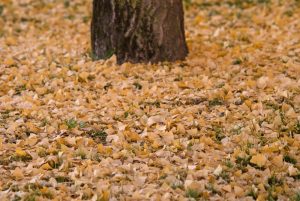At TreeWorks we recommend spending some time over winter mulching your garden beds and trees in preparation for the hot summer weather. Our arborists have put together some information and tips for mulching this winter:

Add 5-6 cm mulch to your trees and garden beds
What happens when we mulch?
- Bugs and worms suck the mulch into deep levels of the soil
- This provides food and nutrients to the microbe ecosystem
- Smaller microbes swell from consuming the nutrients
- These smaller microbes are ingested by larger microbial predators
- Larger microbial predators excrete waste from digestion
- The nutrient-rich waste is drawn up by the plant
Benefits of mulching
- The activity from worm tunnels, microbe hunting and material shredding allows water and oxygen to enter the soil.
- This prevents anaerobic conditions which cause plant diseases and aid pathogens.
- Water is also better retained in the soil, helping plants during warmer seasons and limiting the need for irrigation.
- Soil erosion and weed growth is also reduced.
The best types of mulch
- Compost
- Animal manure
- Leaves, straw or carboard
- Woodchip
Tips for mulching
- Place wooden boards to walk on to reduce compaction of the soil
- Spread the mulch between 5-6cm deep
- Apply the mulch no later than early winter
- Cover the area below from a couple of 5cms away from the base all the way out to the tip of the furthest branch (shadowline).
